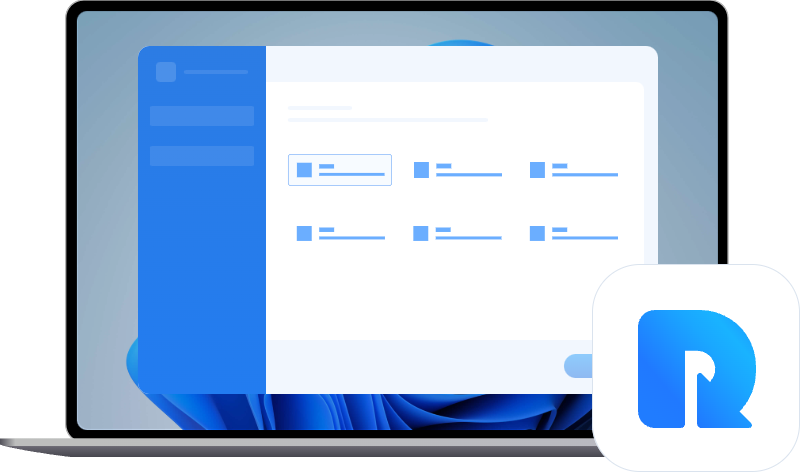Unlock the Fix: Windows 10 Freezes When Copying Files
Facing the daunting issue of Windows 10 freezing when copying files can disrupt productivity and risk data integrity. This article embarks on a detailed journey, exploring a variety of troubleshooting methods, delving into system optimization techniques, and introducing the data recovery tool MyRecover.
Imagine this: you're on a tight deadline, and you need to transfer a bunch of files. You start the process, and bam! Your computer decides it's time for a freeze fest. When Windows 10 freezes while copying files, it's not just an annoyance; it feels like your PC is throwing a tantrum, leaving you helpless.
But fear not! You're about to become the tech wizard who knows exactly how to calm the storm. From uncovering the roots of the problem to casting spells with MyRecover, let's embark on this quest together.
Why Windows 10 Freezes When Copying Files?
The path to solving a problem lies in understanding its cause. When Windows 10 freezes during file copying, think of your PC as a busy chef overwhelmed by too many orders.
The kitchen (your system) might be under-equipped (outdated hardware), the recipe might be too complex (large or corrupt files), or there might be a gas leak (system errors). Identifying the bottleneck is the first step to getting your system back to serving up gourmet dishes (smooth performance).
Effective Troubleshooting Methods
1. Check Your System Health
Ensure Adequate Ventilation:
Step 1: Check if your PC's fans are working correctly.
Step 2: Make sure the air vents are not blocked by dust or debris. Regularly cleaning the vents can prevent overheating.
Step 3: Consider using a cooling pad for laptops or improving airflow for desktops.
Run a Memory Check:
Step 1: Type "Windows Memory Diagnostic" in the Windows search bar and select it.
Step 2: Choose "Restart now and check for problems" to let your PC reboot and check the RAM.
Step 3: After reboot, observe the results displayed post the check to identify any issues.
Check Your Hard Drive:
Step 1: Open "This PC", right-click on the drive you want to check, select "Properties" -> "Tools" -> "Check".
Step 2: Follow the prompts to start the check. If errors are found, you can opt to fix them automatically.
2. Update Drivers and Windows
Outdated or corrupt drivers and operating systems are often the culprits behind system freezes.
Update Windows:
Step 1: Go to "Settings" -> "Update & Security" -> "Windows Update".
Step 2: Click "Check for updates". If updates are available, install them.
Update Drivers:
Step 1: Open Device Manager by right-clicking the Start button.
Step 2: Expand the categories and right-click on each device and select "Update driver".
Step 3: Choose "Search automatically for updated driver software" and follow the prompts.
3. Optimize Your File Copying Process
Sometimes, the way you're copying files could be the issue, especially with large files or volumes of data.
Use Alternative File Copy Utilities:
Step 1: Download a reputable file copy utility like TeraCopy or FastCopy.
Step 2: Install and set it as the default copy handler to take advantage of its optimized file transfer algorithms.
Copy in Batches:
Step 1: Instead of copying all files in one go, divide them into smaller groups.
Step 2: Copy each batch separately, allowing the system to handle smaller loads, reducing the risk of freezes.
4. Check for Malware
Malware can significantly impact your system's performance, including causing freezes during file operations.
Step 1: Use Windows Security (or another reputable antivirus) to run a full system scan.
Step 2: Quarantine or remove any detected threats following the antivirus recommendations.
5. Adjust Your Power Settings
High-performance power settings can help prevent freezes by ensuring your system uses its resources to the fullest.
Step 1: Go to "Control Panel" -> "Hardware and Sound" -> "Power Options".
Step 2: Select the "High performance" plan or create a custom plan that suits your needs.
6. Use MyRecover
In the event of data loss or corruption, MyRecover is your go-to sous chef. It specializes in salvaging lost files with precision and care, ensuring no important data is left behind in the digital abyss.
Detailed Recovery Steps with MyRecover:
Download and Install MyRecover: Like selecting the best ingredients, start by getting MyRecover on your PC.
Select the Drive: Choose where you lost your files as if you're pinpointing where you last saw your misplaced kitchen knife.
Scan for Lost Files: Let MyRecover sift through the data, much like sieving flour to find any lumps (lost files).
Preview and Recover: Inspect the found files (taste-test your dishes) and recover what you need, bringing your lost data back to the table.
Conclusion
With the right approach and tools, tackling the issue of Windows 10 freezing when copying files becomes less of a nightmare and more of a manageable task. It's about understanding your system's needs, optimizing processes, and having the right recovery tools at your disposal. Your PC doesn't have to be a kitchen in disarray.
With a bit of maintenance, the right updates, and helpful software like MyRecover, you can keep your digital workspace running as smoothly as a well-oiled machine.
FAQs
Why does Windows 10 specifically freeze when copying large files?
Large files demand significant system resources, revealing any underlying issues, such as insufficient memory or disk space, much like a heavy dish can test the limits of your kitchen's capabilities.
How often should I update my drivers to avoid these freezes?
Regularly check for driver updates monthly to ensure your system components communicate efficiently, akin to keeping your kitchen tools sharp and ready.
Are there any specific third-party file copy utilities you recommend?
While specific recommendations depend on your needs, tools like TeraCopy and FastCopy are popular for their efficiency and reliability, much like how professional chefs have favorite knives.
What's the best way to set up backups to prevent data loss during freezes?
Implement a regular backup schedule using external drives or cloud services, similar to how a chef keeps ingredients stocked and organized for easy access.
Can defragmenting my hard drive help prevent freezing issues?
Yes, defragmenting can improve your hard drive's efficiency, like organizing your kitchen allows for smoother cooking operations. However, note that SSDs should not be defragmented.


